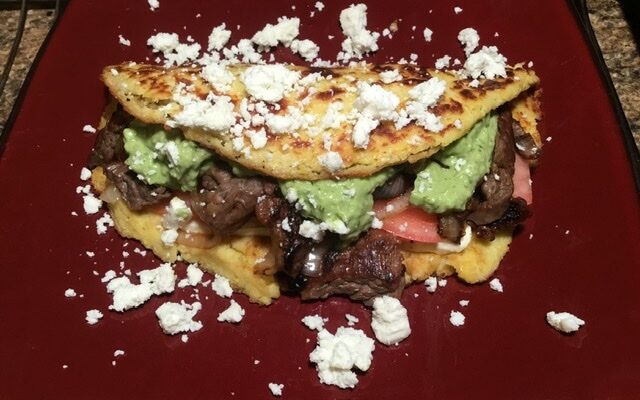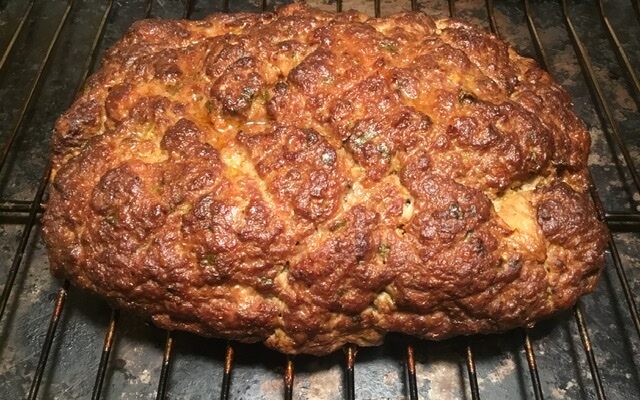Tag: beef
Pepito Sandwich
Pepito Sandwich
This is the first Venezuelan recipe on stonedsoup.net! This gargantuan sandwich is called the Pepito, and is one of the most popular street foods in Venezuela. The sandwich contains either beef or chicken, lettuce, tomato, a plethora of sauces including guasacaca, mayonnaise, ketchup, and mustard; topped with fried potato sticks on a large crusty baguette.
Servings: 1
Ingredients
- vegetable oil for frying
- 1 small potato julienned
- 6 oz skirt steak
- 2 garlic cloves minced
- 2 tsp soy sauce
- 1 tsp Worcestershire sauce
- salt and pepper to taste
- baguettes
- mayonnaise
- lettuce
- tomato sliced
- guasacaca
- ketchup
- mustard
Instructions
- Heat up a couple of tbsps of oil in a sauté pan over medium high heat. Add the julienned potatoes to the oil.
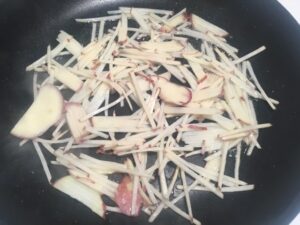
- Fry for a couple of minutes until browned and crispy. Drain on paper towel and set aside.
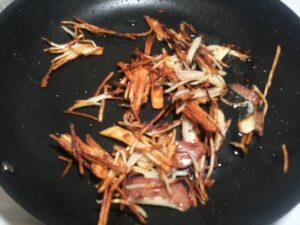
- Add the skirt steak to the pan with the garlic. Cook for 2 minutes. Season with soy sauce, Worcestershire sauce, salt and pepper. Cook for what more minutes. Remove from the pan.
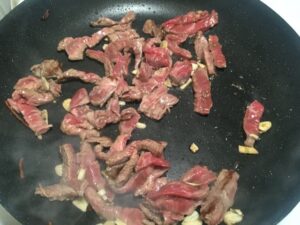
Sandwich Assembly
- Spread the mayo on the baguette.

- Place the tomatoes on the bottom half; lettuce on the top half.

- Place the beef on the bottom half; guasacaca on the top half.
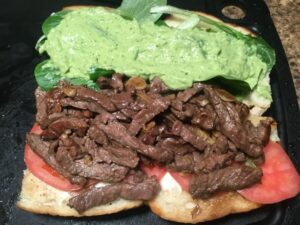
- Squirt on some ketchup and mustard. Top with the fried potato sticks.


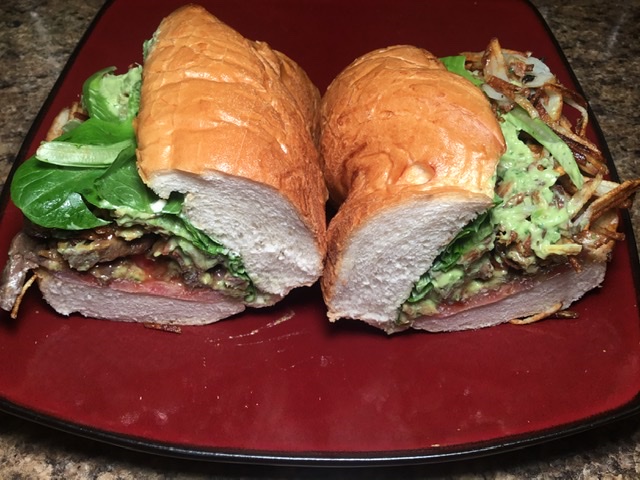
Powdered Beef (Carne en Polvo)
Powdered Beef (Carne en Polvo)
Powdered beef is commonly eaten in Colombia as part of a bandeja paisa platter. Flank steak gets marinated, boiled, then pulverized in a food processor until it resembles a powdered form. Carne en polvo is great for little kids who might have a problem chewing pieces of steak. Not me. I was consuming meat at 6 months old like a champion.
Equipment
- food processor
Ingredients
- 1 lb flank steak
- 5 cups watet
- 3 garlic cloves minced
- 2 green onions chopped
- 1/2 cup white onion chopped
- 1/2 tsp ground cumin
- salt and pepper to taste
Instructions
- Place the flank steak in a storage bag with the garlic, green onions, white onions, cumin, salt, and pepper. Marinate for 24 hours.
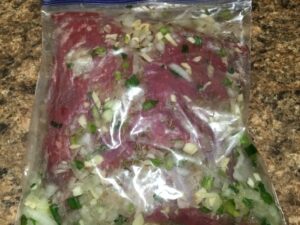
- Put the flank steak in a pot of water.
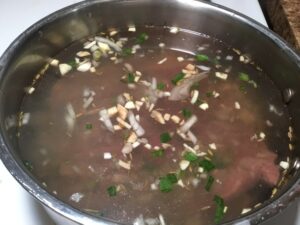
- Bring to a boil, then reduce the heat to medium low. Simmer for an hour.
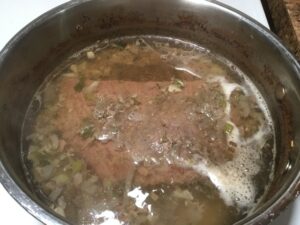
- Strain the meat. Let cool.
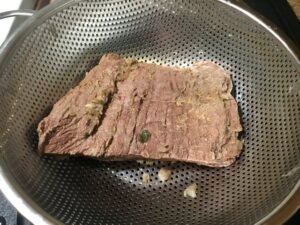
- Cut up the flank into chunks and place in a food processor.
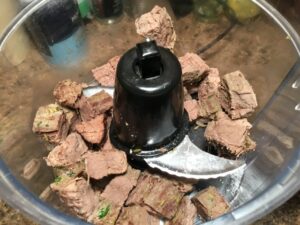
- Process until it is finely shredded.
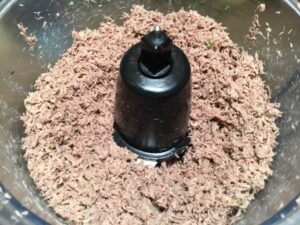
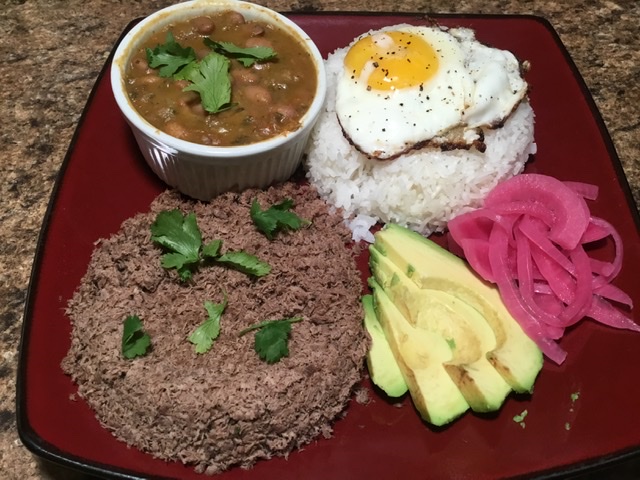
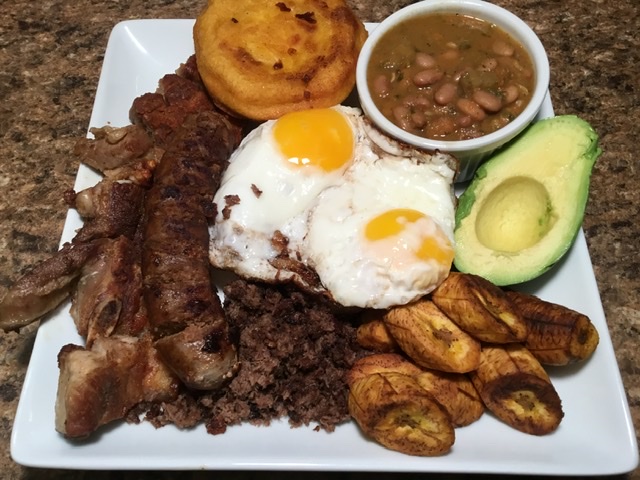
Pastrami Tacos
Pastrami Tacos
Another example of what good things marijuana can lead you to. I was getting sick of eating pastrami sandwiches, so my high ass changed it up into tacos. I diced some pastrami and sautéed it with sauerkraut. Then I heated the corn tortillas in the residual juices and assembled the tacos on the griddle; with swiss cheese and the sautéed pastrami and kraut. Finally, I topped off the tacos with finely chopped fingerling chilies. Needless to say, these tacos were amazing.
Ingredients
- 1 tbsp vegetable oil
- 1/2 cup pastrami diced
- 1/2 cup sauerkraut
- 4 corn tortillas
- 1/2 cup swiss cheese shredded
- 4 fingerling chilies finely chopped
Instructions
- Heat up the oil on a griddle over medium high heat. Add the diced pastrami. Cook for 3 minutes.
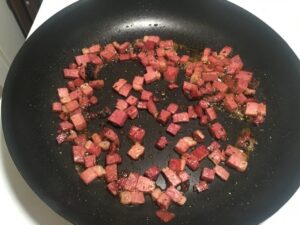
- Add in the sauerkraut. Cook for 2 minutes. Remove from the pan.

- Add the tortillas to the griddle. Cook for 1 minute, then flip.

- Top the tortillas with the cheese, then the sautéed pastrami/sauerkraut mix. Cook for 3 minutes.



